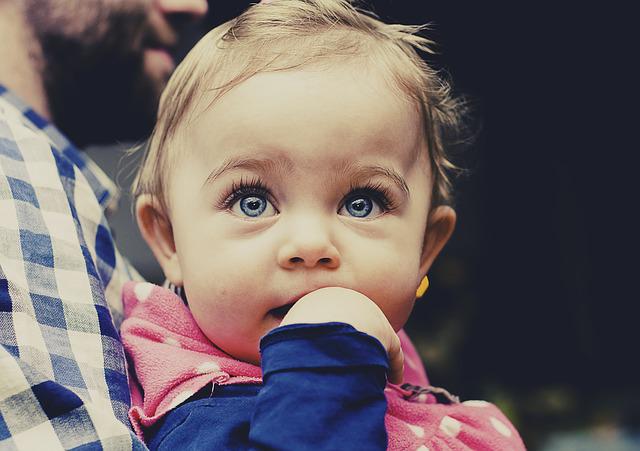Child protective services (CPS) is a government body that investigates accusations of child maltreatment, determines whether child abuse or neglect has occurred, and intervenes to ensure the child’s safety. In most circumstances, CPS agencies assist families in locating suitable support resources to protect and improve their children’s well-being. When considered necessary, these organizations will also find alternative placements for children or seek the termination of parental rights. Despite the fact that CPS agencies differ by state and county, professional standards of practice are commonly accepted and implemented. In this article, read more about reasons that cps can take your newborn.
When filing a report with CPS, it is critical to provide as much information as possible about the newborn, as well as the occurrence or circumstances that led to the suspicion of maltreatment. If reporters prefer to remain anonymous, state rules safeguard their identities. However, it is recommended that parents or guardians be alerted when a medical expert is going to write a report in order to maintain (to the greatest extent feasible) an open, honest relationship with the child’s caretakers. The most effective way to tell parents or guardians is to convey concern that someone could be harming their child, rather than accusing them of abuse.
When presenting this information, the doctor may inquire whether the parents are aware of anyone who may be harming their child. Although the physician-parent connection might become tense, parents generally choose honesty and directness over secrecy. This should allow for a more relaxed working relationship while the child is in the hospital and encourage adequate follow-up care.
Once a report is made, the CPS agency is required to investigate the abuse accusation. The rules governing whether the CPS agency must properly examine every report differ by state. 4 As states try to reconcile their duties for child safety with limited financial means, this remains a contentious subject.
The CPS investigation begins with obtaining all pertinent case information. Many state rules and regulations go into great depth about the investigating process. Most demand interaction with the kid and family within 24 hours of the most serious abuse reports, and within 72 hours of lesser reports. 4 Interviews are done with the kid, the parents, other family members, and other individuals who may have knowledge of the specific claims or the family’s overall treatment of the child.
Many jurisdictions have established children’s advocacy centers to help and guide the kid interview process. Children’s advocacy centers investigate child abuse using a multidisciplinary team approach that includes forensic interviews, therapeutic interventions, victim support and advocacy, and case management.
CPS Guidelines for Child Removal
For CPS guidelines for child removal, you must begin your investigation within 24 hours of receiving the hotline contact. People are more likely to be home at night. You must be extremely cautious as you glance around, since if you miss something, it will be partly your fault if a child is injured or killed. You may be appalled by the living conditions you see, but you are not permitted to remove children purely for reasons of poverty—for example, if there is no food in the kitchen because the parent’s food stamps have run out—but only for “imminent risk” of abuse or neglect. However, distinguishing between poverty and maltreatment can be challenging. When a child is left alone because his mother cannot afford childcare and is forced to work.
What if the child was wounded because an adult was not present to prevent it? Emergency removals are terrifying unless you’ve gotten desensitized through experience. Parents may yell at you and call you derogatory names. A parent may become violent at times. When you feel that a scenario will be dangerous, you can invite a coworker or a police officer, but sometimes things happen quickly, and you’re on your own. If you take the children that night, they will be taken to a processing center and placed in a temporary foster home. Once there, it may take many hours to locate a suitable residence. The children, together with other children, sit and wait.
Kid Protective Services can remove your child from your home only if the agency gets a court order enabling it to do so, or if a CPS caseworker determines that an “emergency removal” is necessary.
REASONS CPS CAN TAKE YOUR CHILD
A CPS caseworker must have cps guidelines for child removal from your home.
You are an urgent danger to the youngster.
If the youngster remained in your home, he or she would be in danger; or The infant is in grave danger. Let’s go over the most common reasons CPS may remove a child from the home of a parent during an investigation.
1. Physical abuse
Unfortunately, one of the most prevalent reasons CPS removes children from their parents is physical abuse. When a CPS caseworker has proof that a child has been abused or neglected, when a CPS caseworker has information that a kid has been a victim of physical violence at a parent’s home, the caseworker may decide that the child is in imminent danger and remove the child from the parents.
2. Sexual exploitation
When a child is a victim of sexual abuse in the household of his or her parents, CPS will remove the child from the home. In most situations, the perpetrator is also removed from the home so that the sex offence against the minor can be prosecuted. (Awareness of Sexual Assault)
3. Illegal drug use
A CPS caseworker may take a child from his or her home if a parent or another person is taking illegal substances in the child’s household.
4. Parental permission
In some situations, a parent may agree to their child being removed from their home. When a parent agrees to have their child removed from the family, the youngster may be placed in a foster care or the home of another relative
When one parent agrees to removal but the other parent refuses to allow CPS to take the children, the agency cannot remove the children without a court order unless the circumstances necessitate a “emergency removal.”
“But why would a parent approve to their child’s removal?” you may think. For example, a parent may consent to CPS taking their child away from home to provide mental health services.
WHAT SHOULD I DO IF CHILD PROTECTIVE SERVICES (CPS) REMOVE MY CHILDREN?
Follow the CPS guidelines for child removal says: Reasons CPS can take your newborn, the agency must tell you within 24 hours. If a CPS caseworker removed your child over the weekend, you would very certainly be told on Monday.
A CPS caseworker or a notice of removal left on your door notifies a parent of the removal (if you were not home at the time of the inspection).
- When this occurs, the following information will be included in a written notification of removal:
- The name and phone number of the caseworker who took your child;
- The cause for your child’s evacuation;
- Court proceedings information;
- Information on your rights and obligations, including your right to have a lawyer represent you; and
- Information regarding your right to see your child after he or she has been removed from your home
If CPS removed your child, you should call the caseworker whose name and contact details are on the formal removal notice as soon as possible.
It is also critical to consult an experienced attorney to explore how you can reclaim your children from CPS.
CAN CPS TAKE CHILD IN OPEN CASE
- Yes. Based on the information supplied, CPS may take the child. If your child is taken, you will have the right to a hearing.
- No. If a child is born in another state, California CPS cannot take the child. CPS may refer the case to another state.
- Yes. After the kid is born, a family member may ask to be designated guardian.
Based on the information supplied, I recommend that you determine where you want to give birth, speak with guardianship counsel, prepare your next steps, and fight your right to keep your own soon-to-be-born kid.
CAN YOU HAVE ANOTHER CHILD IF CPS TAKES YOUR CHILD?
It’s a question that no parent wants to ask, but it’s more often than you think. When Child Protective Services (CPS) removes a child from your home, the consequences can be devastating for you and your family. You not only lose your child, but you also have to deal with future family planning. So, can you have additional children after a CPS incident? It’s a tough subject, as are many child custody disputes. Continue reading to understand the facts about having children following a custody battle with CPS.
WHAT CHILD WELFARE SERVICES CAN AND CANNOT DO
The termination of a marriage can bring about unexpected consequences. One of the more shocking ones is dealing with Child Protective Services, sometimes known as the CPS.
Being met by Child Protective Services employees is not a pleasant experience. They may have paid you a visit in order to take your child away from you. You obviously don’t want anything to do with that.
The question is, what can you do if Child Protective Services arrives at your door? This is one of many crucial concerns we’ll address in this post. You’ll also learn how to handle a disagreement with CPS.
The government takes allegations of child abuse seriously. This is mirrored in the way Child Protective Services operates.
You should be aware that all CPS reports are investigated. It makes no difference whether the accusation was made up or not; they will get involved and try to find out what happened.
When officials entrusted with investigating child abuse charges receive a report, they will look to either screen in or screen out that report. So, what does this imply?
StopItNow.org states that a specific report may be screened out if the department judges that there is insufficient material to continue an inquiry. If the claim does not constitute child abuse or neglect, the department may reject the report.
CAN CPS TAKE YOUR CHILD FOR NOT GOING TO SCHOOL CAN CPS TAKE YOUR CHILD WITHOUT A COURT ORDER?
No.
However, law enforcement can remove your children into protective custody without a court order for up to 72 hours if they think both of the following: a youngster
If not removed immediately, a child who has been abused or neglected will suffer harm.
If the child is to be removed from your care for more than 72 hours and CPS seeks temporary custody, the court must schedule a shelter care hearing within that time frame.
*Even if the parents object, hospitals and health care providers can refuse to return a kid to their parent(s) by holding the child on a “hospital hold” for up to 72 hours. If the kid will not be returned to the parents, a shelter care hearing must be convened within that time frame.
CPS LOOKS FOR THESE 15 SIGNS IN YOUR HOME
1. Orderliness. The CPS caseworker will want to see that you have kept your children’s environment reasonably clean. No, you don’t have to keep your house pristine to be considered “clean.” However, there should be enough walking and living space in the house for your children to wander around freely.
2. Trash. Furthermore, CPS will want to make sure that there is no excessive rubbish or waste sitting about the house that could endanger the children’s health. Trash should be disposed of in a designated trash can or another container.
3. Food. CPS will inspect your refrigerator, freezer, cabinets, and other food storage spaces to ensure that you have enough food and beverages for your children to eat.
4. odours CPS will take note of any unusual odours in or around the home that could indicate a health problem. The stench of rotten eggs, for example, frequently suggests a gas leak in the home. If this has not been addressed, the caseworker will take notes and question you about what you are doing to resolve the matter.
5. Interpersonal interactions. The CPS caseworker will be interested in observing family relationships. For example, how do parents and children interact with and treat one another?
6. Scratches or bruises CPS will examine your children for any strange bruises, wounds, or scratches. They will most likely ask inquiries about the cause of the markings to evaluate whether they may be related to abuse by another family member or negligence of your children’s safety.
7. Excessive drug or alcohol use CPS will search for evidence of drug use in the family, as well as excessive alcohol usage in the home, which could contribute to violent situations that directly or indirectly affect children.
8. Pets. Do you groom and feed your pets? What kind of behavior do they display? The CPS caseworker will see how pets in the home are cared for.
9. Insects and rodents. Is there a presence of roaches, bugs, or other insects in the dwelling areas? Or are there rodents in your home, such as rats or mice? The presence of an exceptionally large number of insects or rodents may prompt CPS to conduct more investigations into your living environment.
10. firearms Guns should be properly stored, locked, and kept out of reach of youngsters. A CPS caseworker will notice a problematic home setting if guns are visible, especially with ammunition inside the firearm.
11. Beds. CPS will want to go through present sleeping arrangements to make sure each child has a dedicated bed or adequate space on a shared bed to sleep comfortably. CPS will also want to confirm that the beds are in good condition.
12. Chemicals in the home. Are chemicals like bleach and other cleaning products stored properly? CPS will search for evidence that chemical items are too freely accessible, which might lead to a youngster swallowing these chemicals and becoming severely ill as a result.
13. Notices left at home CPS will keep track of any notices or past-due debts. For example, if you have a notice on your front door stating that your water will be turned off on a certain date due to nonpayment, CPS will interpret this as being irresponsible in providing basic utilities to children in the house.
14. Pool. CPS will investigate if you have established a safe environment for children if you have a pool in your house.
15. Vehicles. A CPS caseworker may also want to review the inside of your vehicle(s) to ensure that you have proper safety measures in place. For example, do you have car seats appropriate for each child’s age and weight? And are the car seats properly positioned in the vehicle to comply with NHTSA standards.





